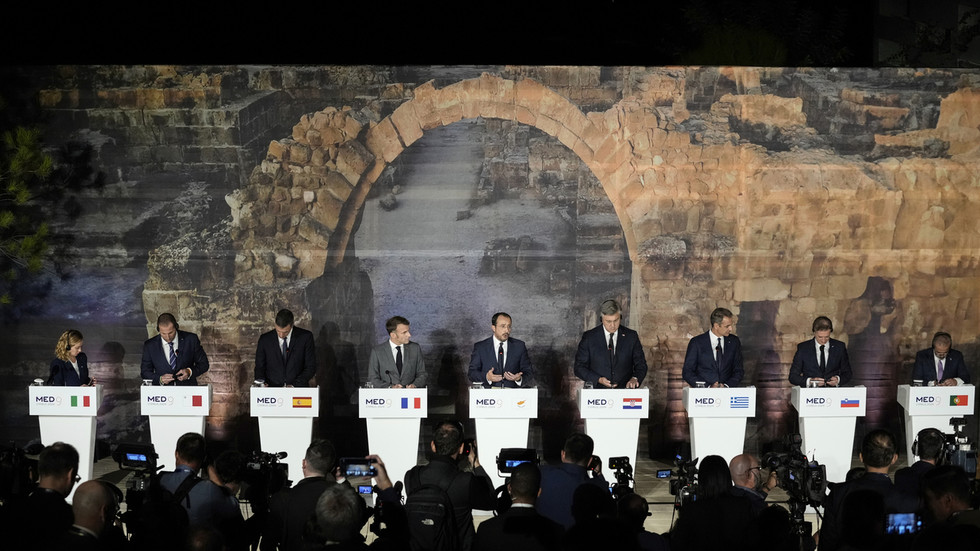French President Emmanuel Macron has recently emphasized the necessity of implementing an arms embargo on Israel due to the ongoing conflicts in Gaza and Lebanon. During a gathering with European leaders in Cyprus, he condemned assaults on United Nations peacekeepers in southern Lebanon, labeling such incidents as “totally unacceptable.” This sentiment echoed the aftermath of an attack where two Sri Lankan peacekeepers were injured following an Israeli tank strike on a UNIFIL watchtower in Naqoura. While Israel maintained that its military action was in response to an imminent threat, Macron contended that the targeting of UN forces was intentional, aligning his viewpoint with that of UNIFIL’s spokesperson, reinforcing his stance that such aggression against peacekeepers cannot continue.
In his address, Macron asserted that halting the sale of arms to Israel would serve as a vital mechanism to curb the escalating violence in the region. He articulated at a joint news conference with the Med9, a coalition of nine Mediterranean EU nations, that an arms embargo represents the primary lever to achieve peace. While he emphasized the need for diplomatic solutions, he clarified that his goal was not to disarm Israel but to prevent further destabilization in the Middle East. Macron has voiced similar calls for an arms embargo previously, underscoring a continuous commitment to seeking a political resolution to the conflict, emphasizing that all Western nations should halt arms deliveries that contribute to violence in Gaza.
Macron’s appeals to limit military support for Israel have not gone unnoticed, provoking a strong response from Israeli Prime Minister Benjamin Netanyahu. Netanyahu characterized Israel as engaged in a battle against forces he described as “barbarism,” which include Hamas and Hezbollah, alongside Iranian proxies. He critiqued Macron and other Western leaders for their calls for an arms embargo, decrying their positions as disgraceful and expressing disdain for the notion that allies would abandon Israel in its fight against hostile adversaries. Netanyahu’s rhetoric reflects a broader assertion that Israel operates within an existential struggle where alignment with traditional allies is crucial.
The ongoing tensions and accusations mark a troubling chapter in the Israeli-Palestinian conflict, particularly concerning the ramifications for regional security and international relations. Macron’s push for an arms embargo indicates France’s stance on balancing support for Israel with considerations for international humanitarian obligations and peacekeeping efforts in conflict zones. The deterioration of the situation in Gaza and Lebanon has heightened calls for accountability and restraint, and Macron’s administration appears to be positioning itself as a mediator advocating for de-escalation.
Moreover, the controversy surrounding Israeli military actions in southern Lebanon raises significant concerns regarding the safety of UN peacekeepers and the broader implications for international peacekeeping operations. Macron’s condemnation underlines a crucial accountability framework for military operations that may harm peacekeepers’ integrity and safety. Such incidents reflect the precarious environment in which peacekeepers operate, often caught in crossfire amidst national conflicts, thereby challenging the effectiveness of international mandates designed to maintain peace and security.
Overall, the exchange between French and Israeli leaders encapsulates the tensions that underpin the broader geopolitical landscape involving Middle Eastern conflicts. Macron’s call for an arms embargo and Netanyahu’s subsequent backlash highlight the complex intertwining of military strategy, international diplomacy, and humanitarian concerns. As both leaders navigate their respective domestic and international pressures, the prospects for meaningful dialogue and resolution in the Israeli-Palestinian conflict remain fraught with challenges, necessitating ongoing scrutiny of the international community’s role in facilitating peace and security in the region.

